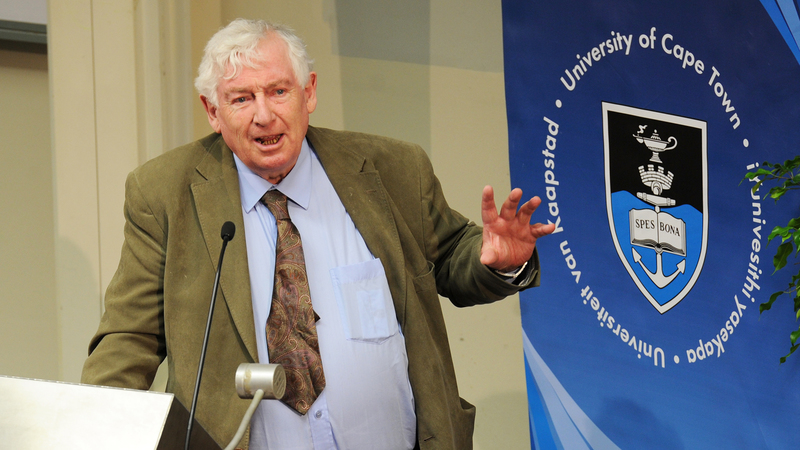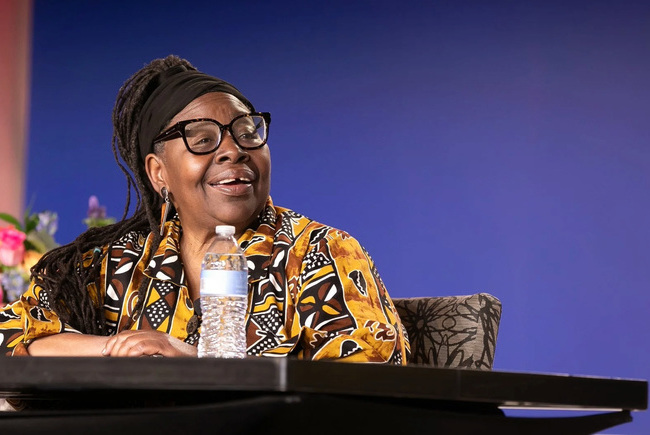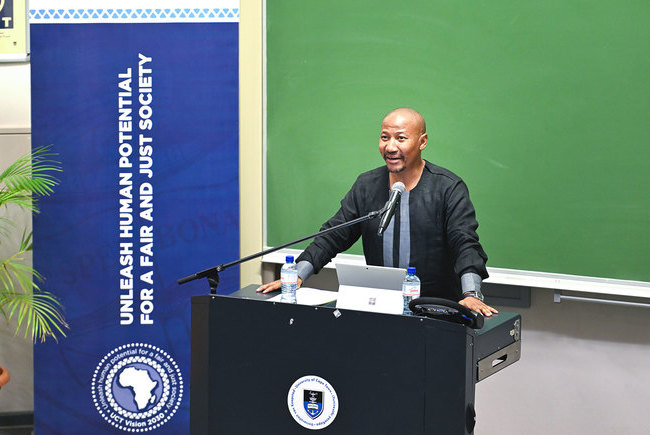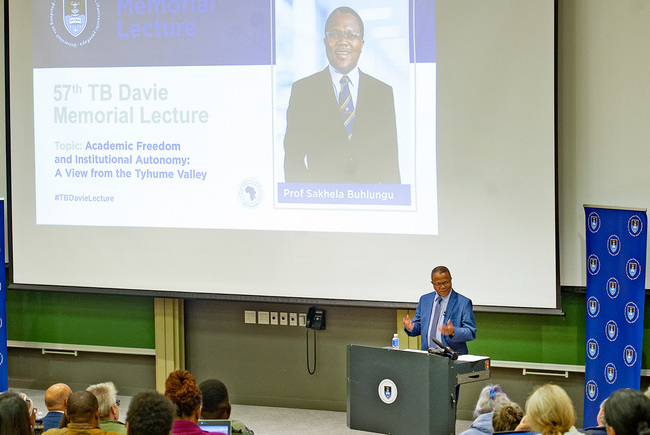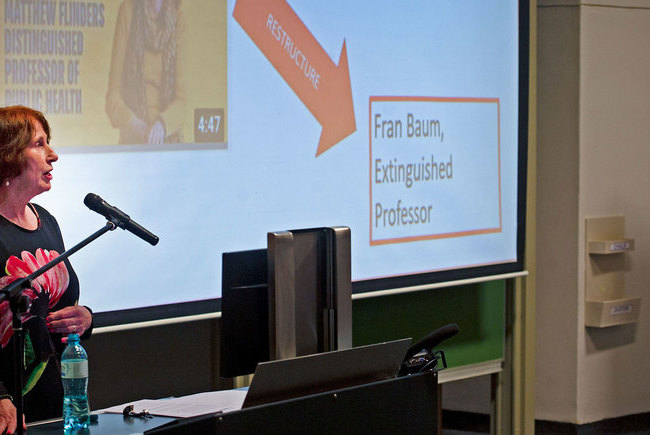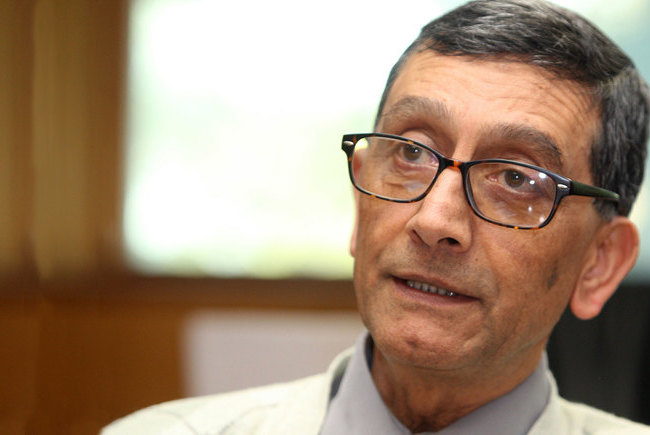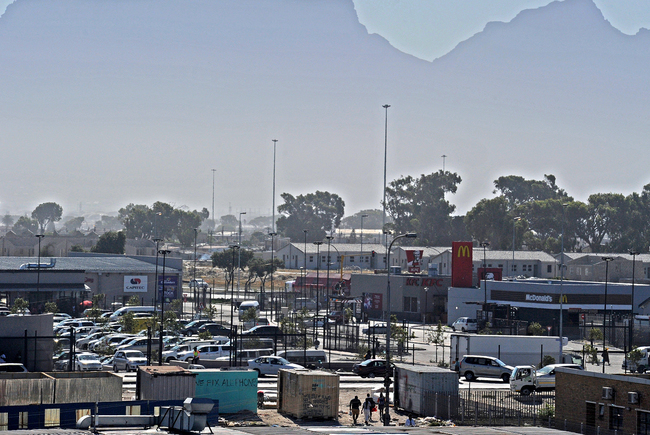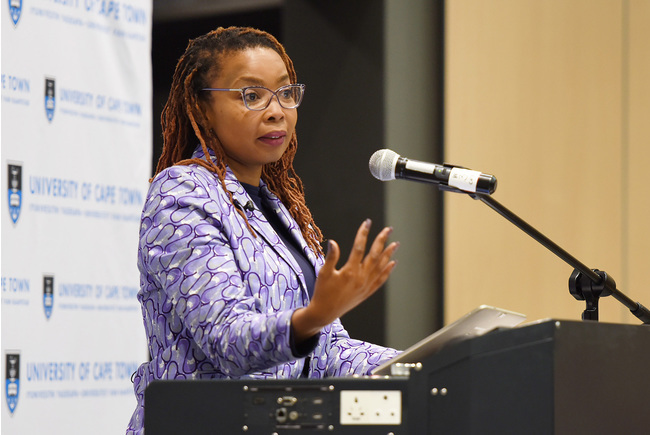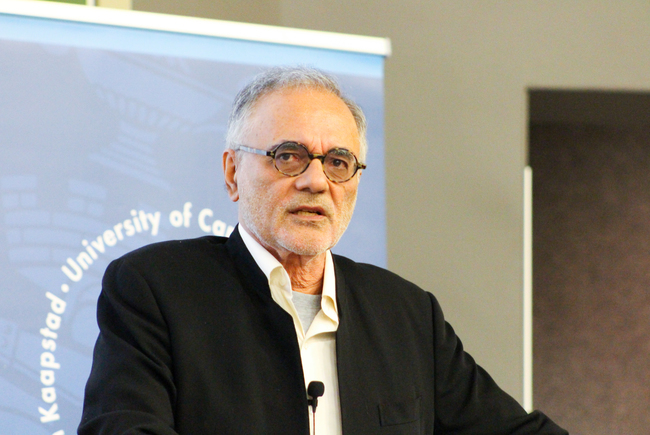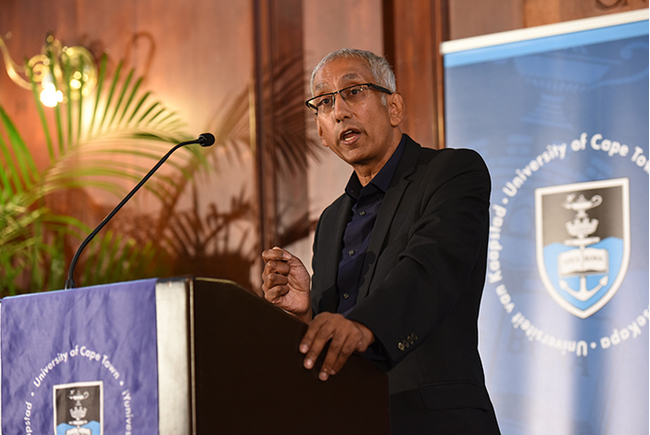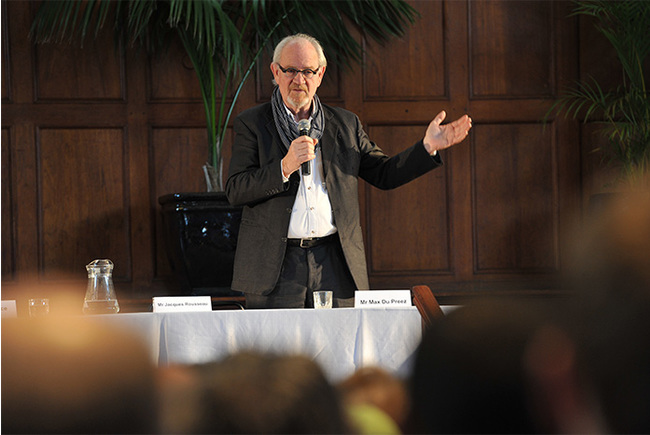Meddling markets threaten academic freedom, says expert
26 July 2013 | Story Yusuf Omar. Photo Michael Hammond."A couple of months or so ago, Oxford University was given just under £6 million for a new Shell geoscience laboratory and for research into natural energy resources," said Jonathan Glover, a professor of ethic at King's College in London. "It's claimed this would help meet future energy needs and also help mitigate the impact of climate change."
Glover, giving the keynote address at UCT's annual TB Davie Memorial Lecture on 25 July, continued: "The university was criticised for accepting the gift in a letter signed by a number of distinguished alumni. They wrote, '˜Shell's core business activities and political lobbying are pushing us towards a future with a global temperature increase well in excess of 2° centigrade. Oxford's own climate scientists have warned us that we need to leave the majority of known fossil fuels in the ground, and yet this new partnership to undertake research will help Shell find and extract even more hydrocarbons.'"
While admitting that he was not sufficiently versed in geoscience to know the extent of the impact that Shell's sponsorship of research was likely to be, Glover said it was "clearly worrying" when universities, with public funding shrinking, needed to rely on corporate backing.
"Can we really believe that those corporations won't partly use it to whitewash their activities, as some people say Shell is doing about its activities in Nigeria and allegedly its fracking here?" asked Glover. "Can one really believe that Shell won't push for research which is more of commercial value to Shell than really for the public good and [combating] climate change? It certainly raises this question."
Glover's lecture, titled "Universities, the market and academic freedom", argued that viewing higher education as a marketable commodity threatened academic freedom and could curtail universities' ability to perform their core functions. Glover described these functions as including both educational aims and contributions to wider society.
This view, he said, has seen a trend where research that with tangible and potentially profitable aims were prioritised in the rat-race for funding, something Glover lamented.
Sardonically refuting that universities should simply teach people "how to make money", Glover, referring to John Henry Newman's 1852 work The idea of a University, believed that the kind of knowledge "that enlarges a student's mind" was a worthy end in itself.
Glover's argument is backed up by a number of high-profile publications, including Naomi Klein's 2000 book No Logo and David Cooper, (head of UCT's sociology department)'s 2011 book The University in Development.
Dr Max Price, Vice-Chancellor of UCT, introduced Glover by providing an example of the threat of the commercialisation of higher education.
"In Australia, a survey conducted in 2001 of about a thousand academics indicated that 17% of them, nearly one in five, reported that they had been prevented from publishing contentious research results because of the people who were sponsoring their research who were placing those sorts of restrictions on them," said Price. "Forty-one percent said they had experienced discomfort with publishing such results because of the pressure that they had experienced."
That universities were put at the mercy of a profit-driven market was not surprising to Glover, given that the alternative seemed at first glance to be a state-centric economy akin to Mao Zedong's China or Josepth Stalin's Soviet Union. Glover, however proposed a middle ground, based on John Maynard Keynes's 1926 book The End of Laissez-Faire.
"[Keynes] also argued ... for there being ... autonomous bodies within the state, neither under state control nor under the total influence of the market," said Glover. This, Glover held, was perhaps the best way forward for ensuring that academic freedom was respected.
"The history of academic freedom and the academic freedom struggles in South Africa and at this university have very much been about protecting universities from interference by the state, said Price, in closing the lecture. "That has been our strong focus; we understand why it's the focus, and as I mentioned earlier, it's going to remain our focus.
"But I think the value of your lecture and the global perspective it brings is to highlight for us that we ignore at our peril the influence of our non-state actors and in particular the private sector and commercial interests in restricting what we research and how we publicise that research, possibly in affecting curricula, possibly through the funding of bursaries and education influencing who we teach as well, and that these are areas that we need to focus on if we are going to remain true to protecting academic freedom."
UCT has hosted the TB Davie Memorial Lecture annually since 1959 to commemorate former UCT Vice-Chancellor Thomas Benjamin Davie, who is renowned for defending the principles of academic during his tenure from 1948 to 1955.
Listen to the full speech. | Listen to an extract.
 This work is licensed under a Creative Commons Attribution-NoDerivatives 4.0 International License.
This work is licensed under a Creative Commons Attribution-NoDerivatives 4.0 International License.
Please view the republishing articles page for more information.
TB Davie Memorial Lectures
In the classic expression of freedom of speech and assembly, UCT's policy is that our members will enjoy freedom to explore ideas, to express these and to assemble peacefully.
The annual TB Davie Memorial Lecture on academic freedom was established by UCT students to commemorate the work of Thomas Benjamin Davie, vice-chancellor of the university from 1948 to 1955 and a defender of the principles of academic freedom.
Organised by the Academic Freedom Committee, the lecture is delivered by distinguished speakers who are invited to speak on a theme related to academic and human freedom.


